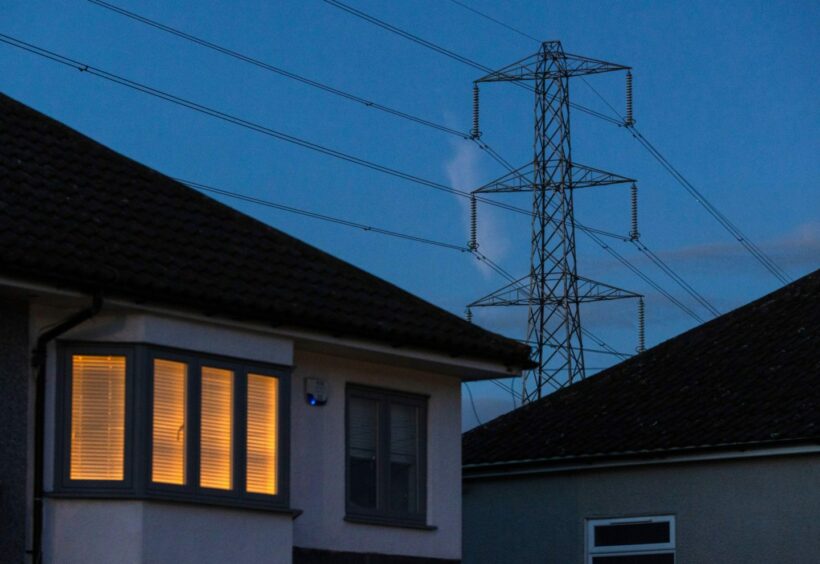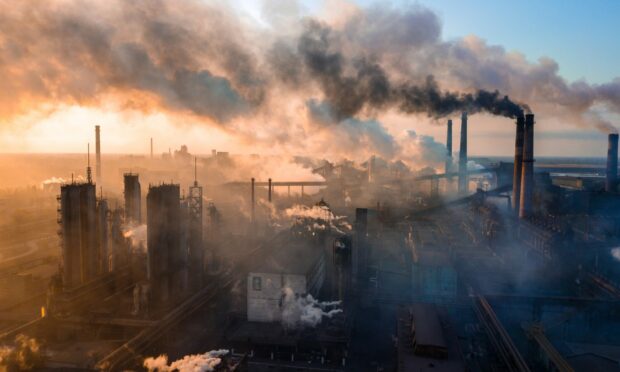As the energy price cap surges, a leading petroeconomist has painted a gloomy picture as the UK faces up to the prospect of winter without adequate energy supplies.
It comes as regulator Ofgem has announced the energy price cap will increase from the current £1,971 to £3,549 from October 1.
Professor Alex Kemp of Aberdeen University says, in the short-term, it is “difficult to see any alleviation” to the current power problems plaguing the UK.
He said it is now a case of “planning for it”, and agreed that the phrase “energy crisis” is appropriate with summer coming to its end.
A shortage of energy across Europe is one of the main drivers behind the UK’s ongoing cost-of-living crisis, and there is a feeling it could get worse before it gets better.
New fields a must
Westminster is trying to increase North Sea flows to ease the problem, and Professor Kemp believes safeguarding security of supply must be a priority.
He said: “On the gas side, new field developments that adhere to the regulatory thresholds should go ahead. That is the case for oil too.
“The UK imports more than 50% of its gas requirement, and we import a lot of oil as well.
“In the medium term, the case for allowing new projects, like Jackdaw, is clear to me.”
Gas storage is a big problem
A distinct lack of operational gas storage sites has only served to amplify the UK’s energy woes.
Centrica has put the wheels in motion to reopen the Rough facility in the North Sea, a move that has been welcomed by market observers.
The UK’s largest natural gas storage site previously accounted for 70% of the country’s gas storage but was axed in 2017 due to the cost of operation.
“The lack of storage in the UK is a problem,” said Professor Kemp.
He added: “All of Western Europe is very gas deficient following Russia’s invasion of Ukraine, and there are some interesting things happening in the trade of liquefied natural gas (LNG).
“A lot of LNG is coming from the US and Qatar to terminals in the UK. It is fed into transmission lines and goes to Bacton, Norfolk, where it is being exported to the Netherland and Belgium.
“That is because gas prices in mainland Europe are very high, and it’s being used to fill up their storage tanks – they have much bigger storage capacity than we have.
“The interesting question is what will happen when we get to winter, and the UK demand for gas will rise.
“The idea that the interconnectors will reverse and gas will flow from Europe into the UK, that is a hope, but there must be some doubt about whether that will happen. There is a significant risk about security of supply.”
Rationing is a last resort
Under a “worst case scenario” for the UK, some form of energy rationing could need to be implemented.
If that were to happen, then Professor Kemp thinks domestic households would be the last to be subject to the rules, because it is “very complicated and there is a high risk involved”.

He added: “If it comes to rationing, it will be the big industrial consumers, and potentially the power generators, because of lot of power generation relies on natural gas.
“In a very difficult situation, the UK may have to move to other forms of primary energy.
“Onshore and offshore wind is growing, but it might not be enough, and therefore, we might have to resort temporarily to coal. These are the big questions at the moment.”



Conversation